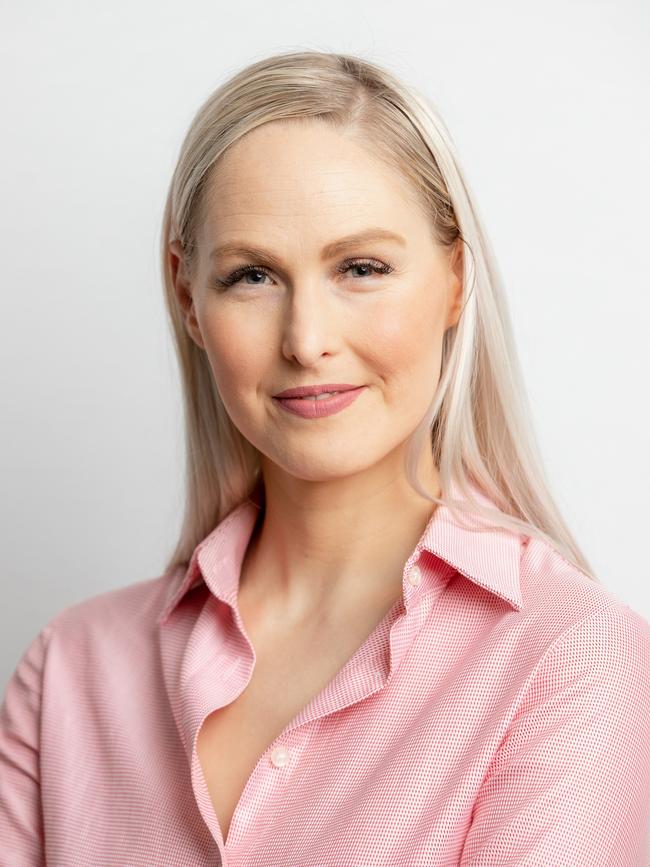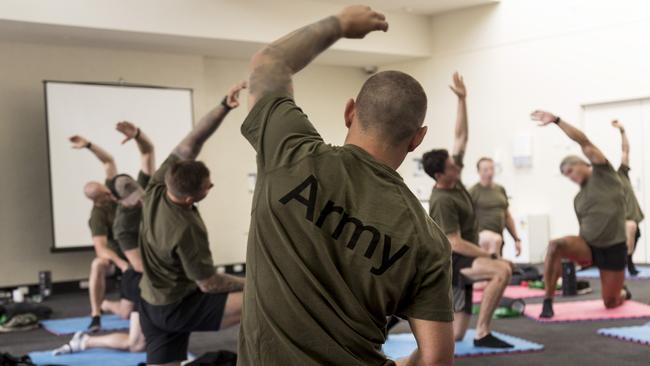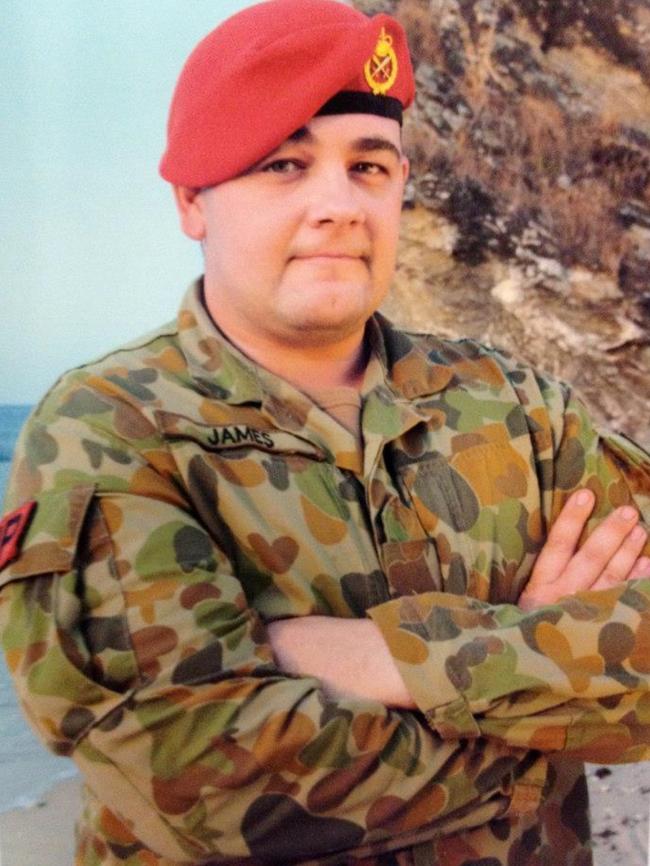No psych notes, no job? Why Defence wants your reports
Psychologists are increasingly concerned at requests for the confidential counselling records of job applicants.

Corporate psychologists are increasingly concerned at requests from organisations, including the Australian Defence Force, for access to their patients’ confidential mental health reports.
Companies providing employee assistance programs (EAPs) to corporates say they are fielding an increasing number of requests from workers to access their reports in order to complete job applications.
The programs are now common across Australian business and offer employees suffering stress, depression, anxiety and other mental health issues confidential counselling which is paid for by the employer but which is not shared with the company.
The ADF routinely asks candidates for new jobs if they have undergone any EAP sessions within the past three years.
If the candidate says yes, he or she is asked to sign over access to notes from the EAP provider.
It is not clear whether failure to allow access means the candidate fails the psychological component of recruitment and is deemed medically unfit to join the services. However the form requesting access notes that: “Early provision of the information you have on file will allow us to make a timely decision with regards to ADF recruitment for your patient.”

An ADF spokesperson told The Deal that accessing EAP notes “is to safeguard the welfare of candidates as they embark on their career”.
“Where a candidate discloses a previous or current health condition that may place them at increased risk of injury or illness from military service, Defence may request relevant reports to assist the recruitment process,” they said.
“Defence has a duty of care to its workforce and takes the mental health and wellbeing of ADF members seriously. It is most appropriate Defence protect the health and wellbeing of candidates throughout the recruitment process.”
But the ADF approach worries the Australian Association of Psychologists (AAP) as well as the peak industry body for the companies providing EAP services.
The AAP’s executive director, Tegan Carrison, says requests from patients trying to join the ADF have become increasingly common. The association has heard of cases where the client has signed off on access following a request from the ADF. While The Deal understands some other government agencies seek similar information, Carrison says the ADF appears to be the main organisation doing so.
The industry body, the Employee Assistance Programs Association of Australasia, says the ADF requests undermine the privacy and integrity of the EAPs.
While a request for medical health data is not in breach of privacy rules – because the candidate can refuse – the association, which oversees EAPs in 80 per cent of the top 500 companies, says the request goes directly against the mission of the organisation. Its chair of ethics, John McManus, says the requests represent “unusual conduct” and could potentially discourage clients from seeking help.
“It’s a mistake,” he says. “It’s a breach generally of the privacy of the individual they are seeking to consider as a candidate.”
The Office of the Australian Information Commissioner says sensitive health information, which is governed under the Privacy Act, should only be collected if absolutely necessary.
“Any collection of health information by Australian government agencies, including the ADF, must be reasonably necessary for, or directly related to, one or more of the agency’s functions or activities,” according to a spokesman.
“Generally, a health service provider can only disclose sensitive health information with an individual’s consent, unless an exception applies (such as where the disclosure is required by law or to prevent a serious threat to a person’s life, health or safety). Organisations that provide a health service and/or hold health information are subject to the Privacy Act, as are Australian government agencies.”
EAPs have been in place for almost four decades and were originally developed to deal with alcohol and drug dependence among workers. They were initially run internally by organisations.
In the 1980s, organisations began using external providers in a bid to ensure there was no breach of privacy.
The providers are bound by a code of ethics and employees are told information they reveal will not be shared with others unless subpoenaed by a court or if the psychologist believes the patient is at risk of harming themself or others. This approach means HR departments can offer the EAP service while assuring staff their managers will never know they have even sought assistance. As Carrison says: “In an ideal world, the employer is simply the funder.”

People seeking to join the ADF are given a form to sign which requests their EAP provider to reveal the candidate’s “presenting problem and any related diagnoses”; “frequency and duration of treatment, including date treatment ended”; “details of the treatment including medications prescribed”; “response to treatment”; “symptoms and prognosis upon discharge”; and “any pre-existing reports of relevance to the reason for referral”.
The form states that “the information you have provided will assist us in providing a fair and thorough assessment, with due care to the individual involved” and that “early provision of the information you have on file will allow us to make a timely decision with regards to ADF recruitment for your patient”.
It also states: “Please note that the candidate is responsible for all costs incurred in providing the reports.”
Asked if it is ethical for an organisation to seek notes, Carrison says: “I think it’s really, really important that these relationships are defined very carefully and that the patient is provided with informed consent about what (is) the potential.
“While I’m not suggesting that they are, it’s important that they don’t feel pressured into providing consent for that information to be released and that the psychologist is comfortable that in providing those notes (they meet) all of their professional responsibilities.”

Paul James, the director of a veterans’ legal office, Operational Legal Australia, says he has been approached by Defence and first responder clients with issues surrounding EAPs. James, who is a veteran of the ADF and NSW Police who has been diagnosed with PTSD says: “I think EAP has a model that, provided it has protections, has a role to play. The moment you undermine that privacy, you undermine the system and you undermine mental health. Defence really shouldn’t touch it.
“I’m concerned that if Defence was to get an EAP record that alluded to a condition that it may stop that person getting employed. I don’t believe Defence has a right to reject someone’s application based on that and if they do, there needs to be mechanisms under the law that people are able to challenge that.”
Former University of Sydney psychology lecturer Elizabeth King has been looking at EAPs for more than 25 years and says problems date back to early days.
“To be completely honest, I think I know less about the positive aspects of them,” says King. “These types of programs, like mindfulness or stress management programs, can be used as Band-Aids for bad organisational management.”

She believes that while the programs were set up with good intentions, there is too much room for things to go wrong.
“If (an employee’s) wellbeing and performance can be enhanced then it is fantastic, but if people can’t have their confidentiality kept then it is completely pointless,” she says. “There’ve been people who have put in an enormous amount of effort with unions and organisations to set these up … but I’m also aware from the beginning there have been these confidentiality breaches and it just destroys the entire point of the programs.”
University of Newcastle human resources associate professor Dr Robert-Leigh Compton says the ADF requests are “unacceptable”. “For the Department of Defence to ask that would be totally inappropriate,” he says “They shouldn’t have any access whatsoever.”
Compton has been involved in EAP programs for four decades, and says they have changed significantly due to privacy breaches and issues relating to the confidentiality of the programs. “Whatever is said inside the counselling room has to stay there,” he says. “The employer shouldn’t have any idea what’s said inside. It’s a doctor-patient confidentiality rule. An employer shouldn’t under any circumstances know that you’re going for counselling unless you tell them.”
McManus says if an EAP provider gave their notes to anyone other than the client without written consent, they would be breaching the organisation’s ethics and risk losing EAP membership. For Defence to try to use notes as part of a job interview undermines the pursuit of improved mental health professionals, he argues.
“I certainly think they should not be doing that because that would compromise the mental health and wellbeing of the candidate and be a breach of their privacy,” he says.
If you can add to this story, write to Joseph Lam at lamj@theaustralian.com.au or securely at editorialjoe@protonmail.com.








To join the conversation, please log in. Don't have an account? Register
Join the conversation, you are commenting as Logout